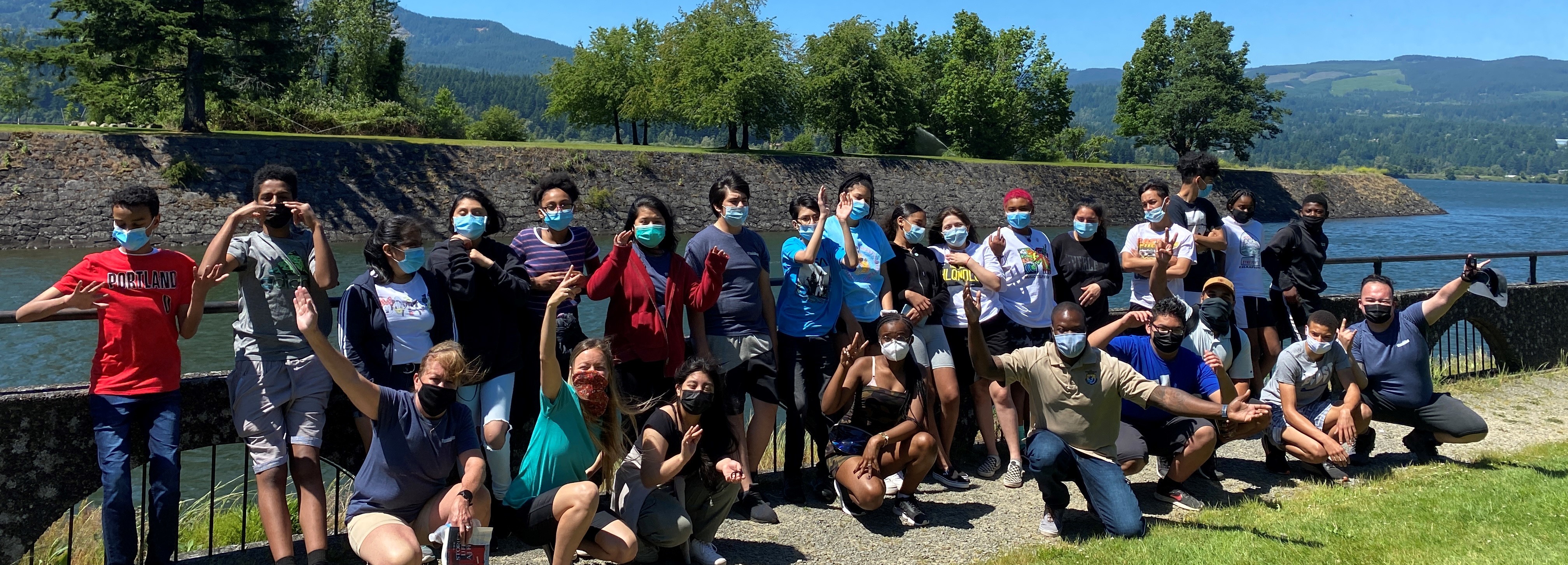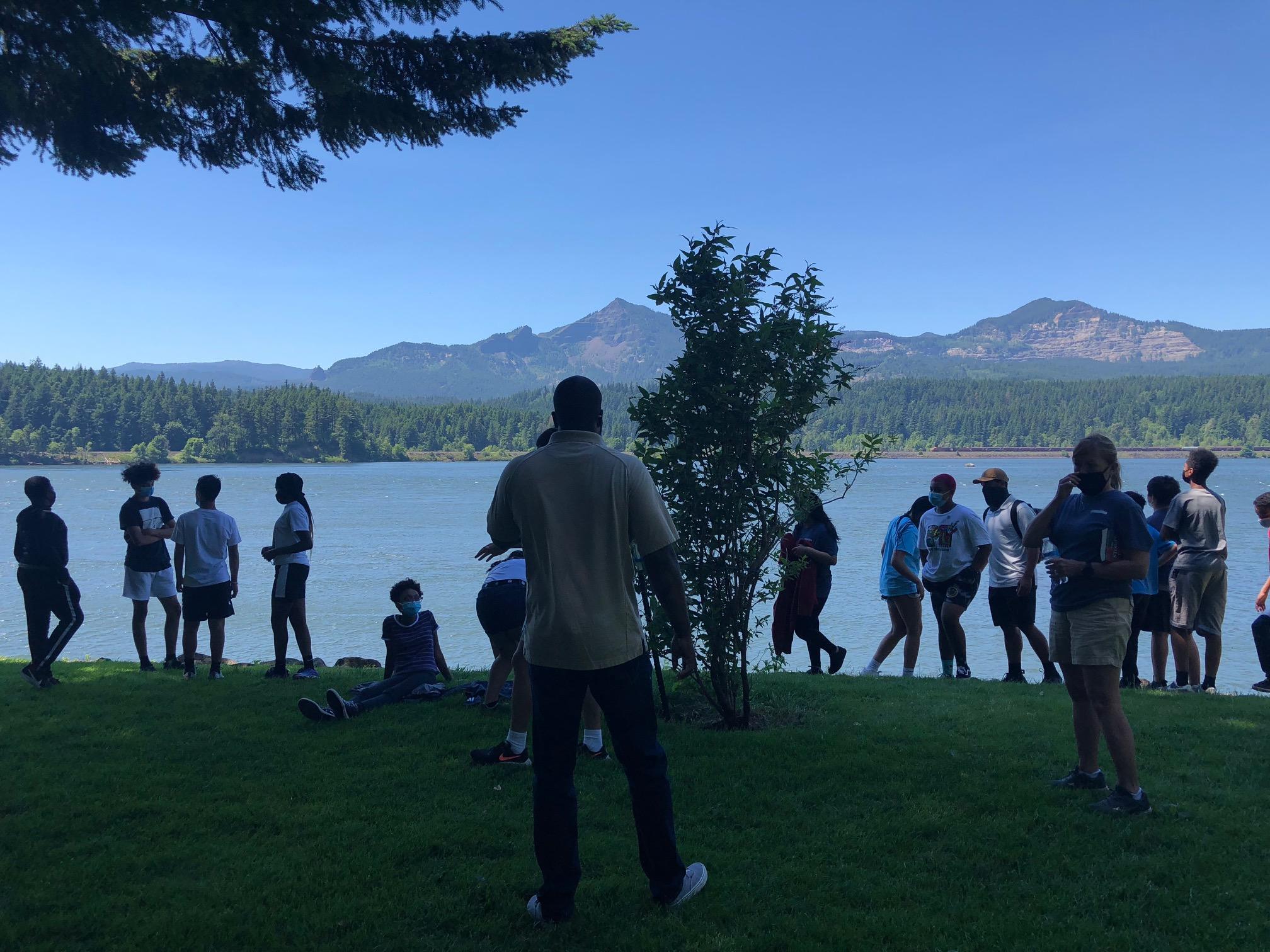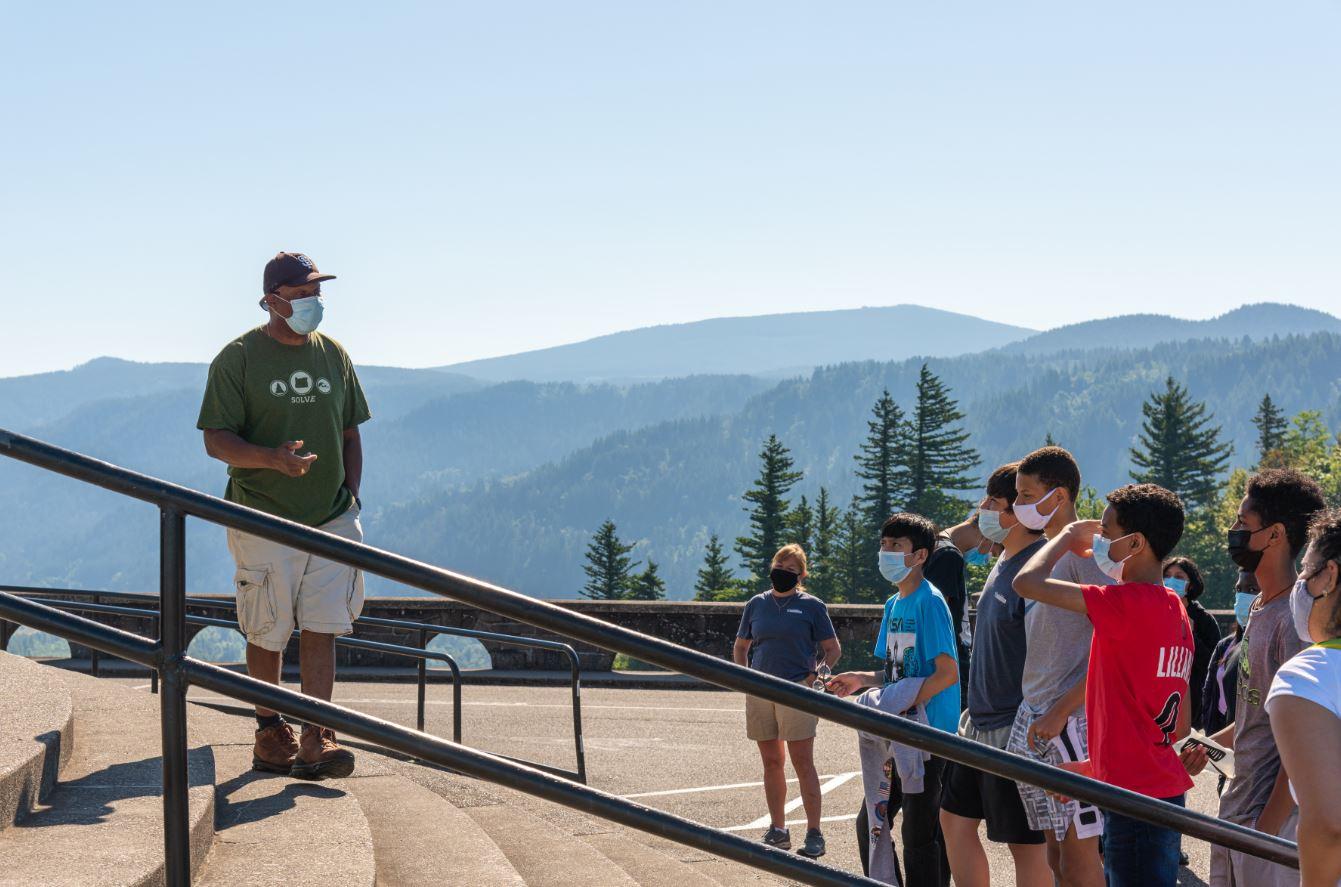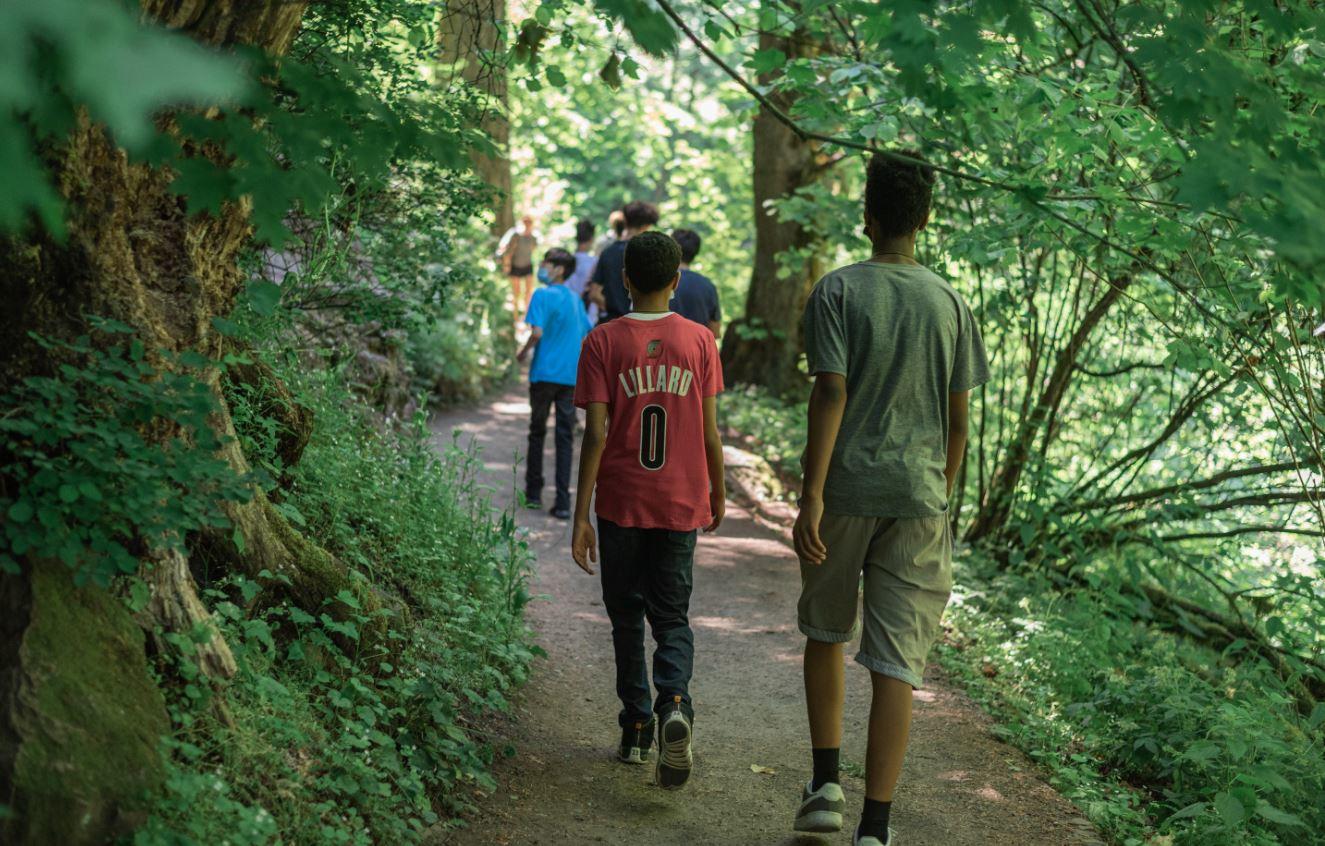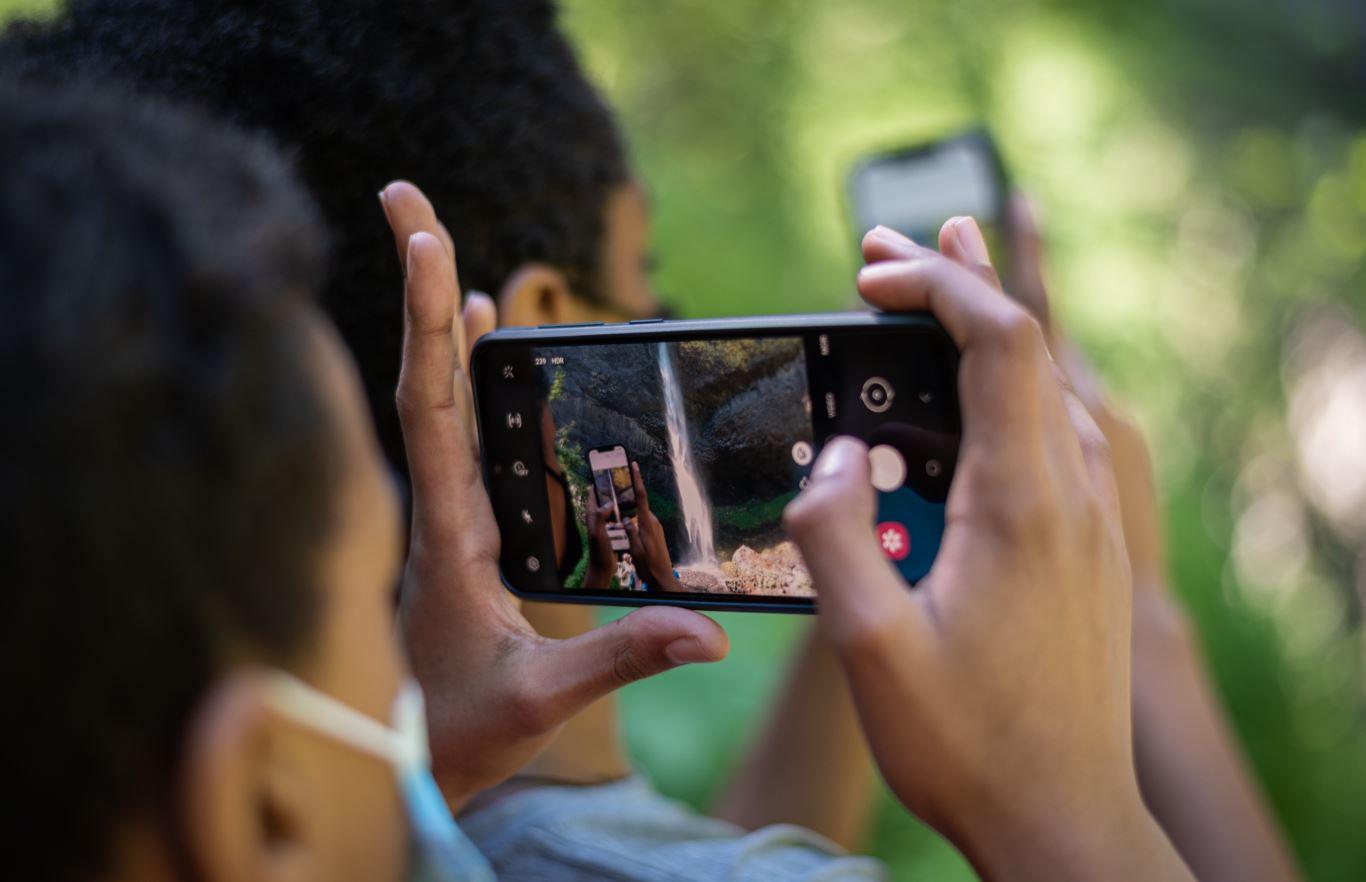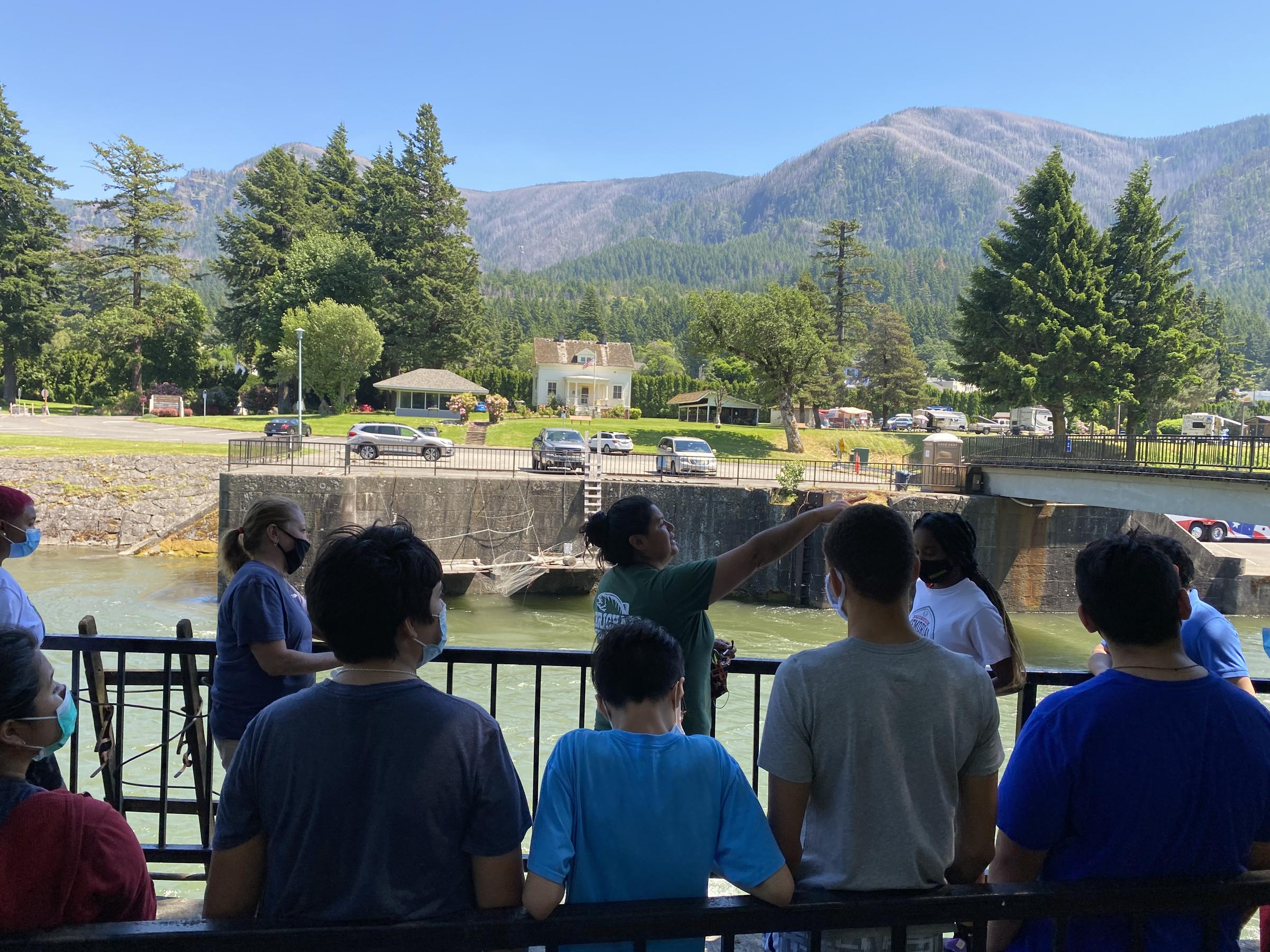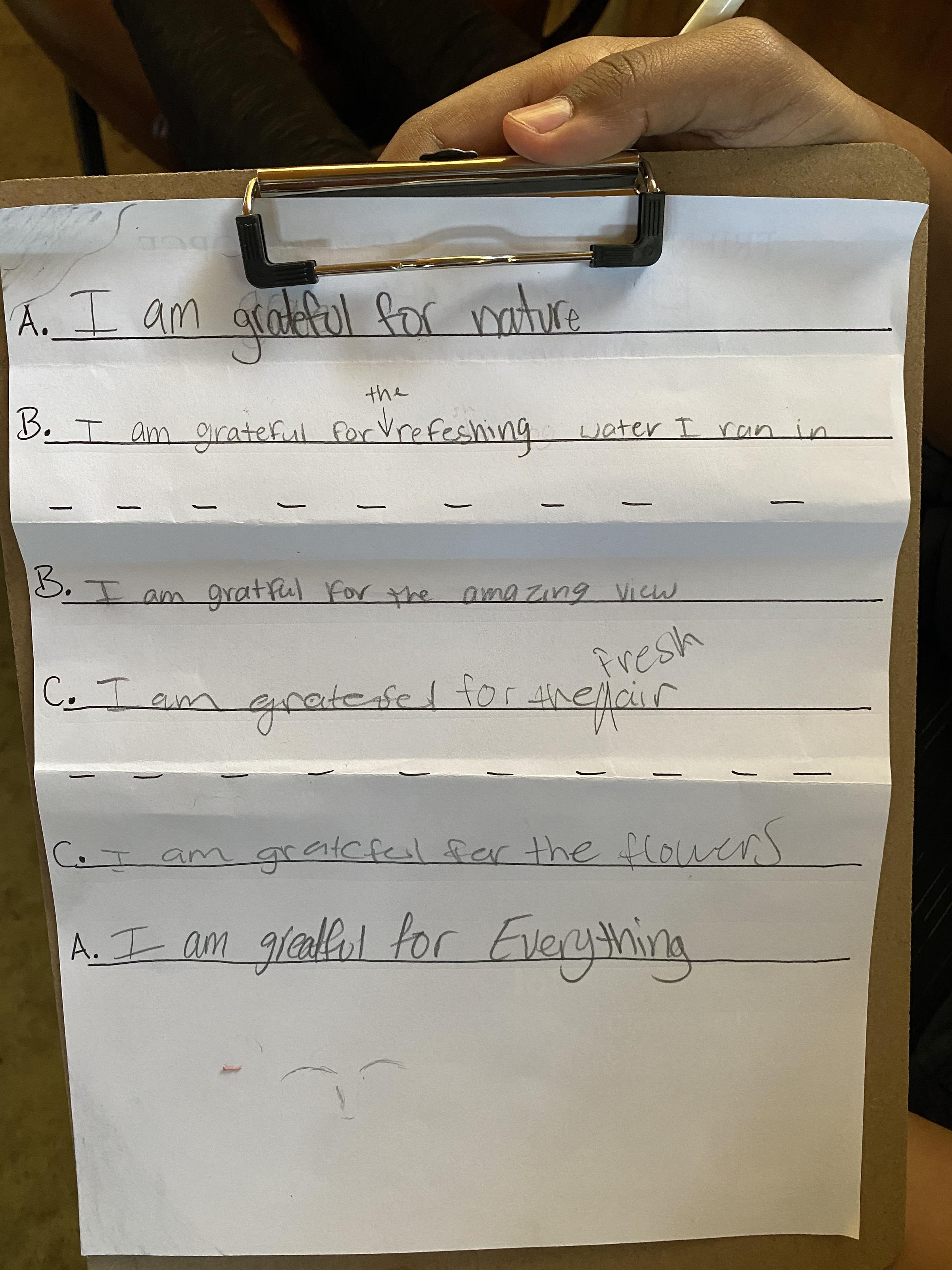As 2020 began, COVID-19 still seemed like a remote concern and as Friends’ community engagement specialist I looked forward to exploring nature with students of our outdoor youth education programs. You can guess what happened next: I ended up working remotely at home, quarantined with my dog. It was a tough time and I could only imagine how our students felt, having their spring school trips to the Gorge canceled.
As fall approached, I resolved to find a way to make our fall Great Gorge Wahoo! program for St. Andrew Nativity School happen. If we couldn’t get the students to the Gorge, I’d bring it to them—something to leave them as wowed as those waterfalls would have, and feeling ownership as future stewards of the Gorge. For that to happen, it’s important for youth, and especially youth of color, to relate to the land managers and conservationists they meet. It’s hard to feel ownership of something if you don’t see yourself reflected or represented there. That’s where Rikeem Sholes came in.
From watching TV documentaries in New Orleans to “spying” on Northwest fish
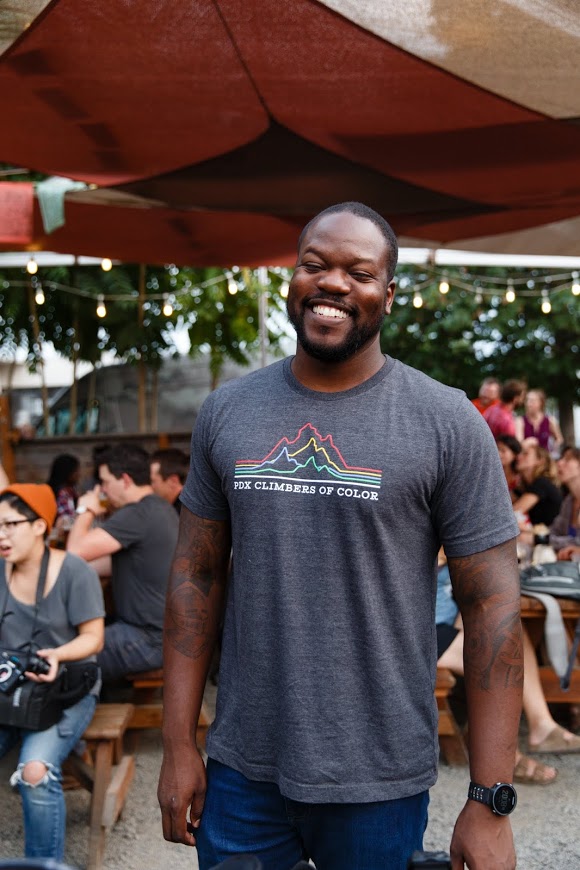 I first met Rikeem Sholes in fall 2019. A fish biologist for the U.S. Fish and Wildlife Service and a hike leader with People of Colors Outdoors, Rikeem says his job is to “spy” on fish, which he does in a non-invasive way, monitoring fish populations with high-tech devices like drones. He’s youthful and kind, and I knew the seventh- and eighth-graders at St. Andrew would connect with him—and that he in turn could entice them to see biology and conservation as a meaningful and interesting career. With the school’s demographic makeup, I also hoped the students would relate to Rikeem as a young, Black “fish nerd” who loves science and loves the outdoors even more.
I first met Rikeem Sholes in fall 2019. A fish biologist for the U.S. Fish and Wildlife Service and a hike leader with People of Colors Outdoors, Rikeem says his job is to “spy” on fish, which he does in a non-invasive way, monitoring fish populations with high-tech devices like drones. He’s youthful and kind, and I knew the seventh- and eighth-graders at St. Andrew would connect with him—and that he in turn could entice them to see biology and conservation as a meaningful and interesting career. With the school’s demographic makeup, I also hoped the students would relate to Rikeem as a young, Black “fish nerd” who loves science and loves the outdoors even more.
In December, Rikeem and I presented online to 54 St. Andrew students, offering Friends’ first virtual Great Gorge Wahoo! program. I was nervous at first, because it can be difficult to engage teenagers in a classroom, let alone keep them engaged virtually from a computer screen. Rikeem started off talking about his life—why he decided to become a biologist and what his job is like. It was a huge hit, and the kids were full of curiosity. Even better, they were engaged, asking questions, and having fun.
One student asked Rikeem, “Were you always into outdoor stuff? What made you want to be a biologist, did you grow up doing stuff like that?” Rikeem explained that as a Black man who grew up in New Orleans, Louisiana, he was raised in a family that didn’t get out into nature often. His exposure to nature came from watching PBS documentaries that inspired him to want to explore this massive unknown world of oceanic life. I, and probably more than a handful of students, were surprised by Rikeem’s response. Who knew his passion for the outdoors as an avid outdoorsman, climber and fisher, with a 10-year-plus career as a biologist, was all sparked as a child watching documentaries?
“They were so unique and alien,” Rikeem said as he explained why he decided to devote his career to fish. “Every time I watched one of those shows it was like something I had never seen before. I still see stuff in the ocean I’ve never seen before and I’ve been learning about this stuff for most of my life.” After a long, entertaining Q&A, Rikeem ended by encouraging them, “Take your time figuring out what you want to study and then really commit to that thing, even if it’s really obscure. I know some biologists that spend their entire lives studying one specific kind of something that nobody has heard of…(but) all you need is one person to possibly save a population.”
To inspire the students to spend more time outside exploring what nature has to offer with their families, we sent each of them a “Gorge Explorer” package that included a Friends’ beanie (because what young person can turn down new swag?), Gorge wildlife stickers, and an annual Oregon State Parks parking pass that would be good for their families to park for free all day at any Oregon State Park.
Off Zoom, into the Gorge
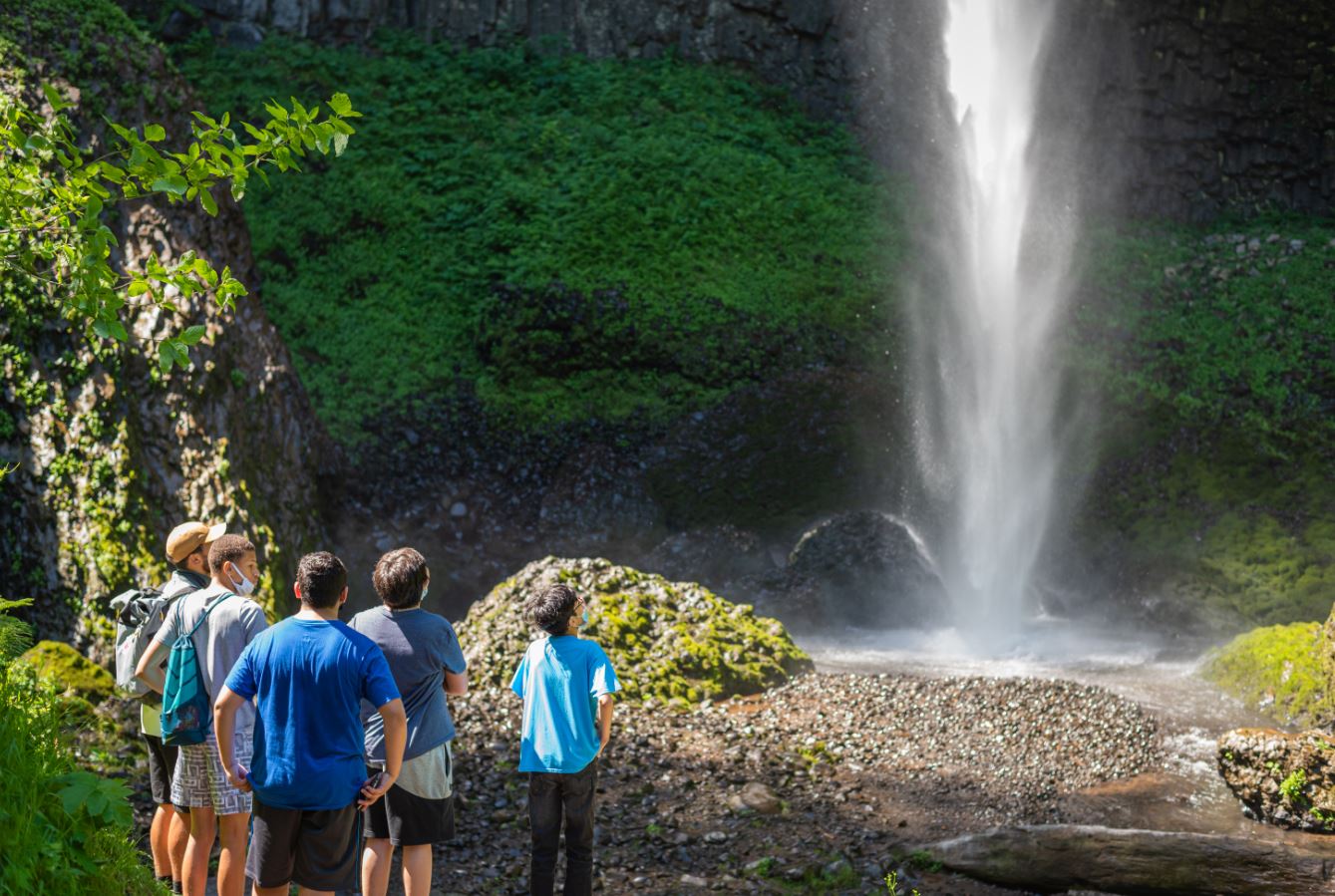
We took the students to Vista House where they were welcomed by retired Oregon State Parks Ranger Kevin Price. That was followed by a hike to beautiful Latourell Falls. A visit to Thunder Island in Cascade Locks was special because the students got to meet Rikeem in-person. He took them on a walk-and-talk about Columbia River fisheries and climate change.
Rikeem’s talk was followed by a visit from Terrie Brigham, manager of Brigham Fish Market in Cascade Locks and member of the Confederated Tribes of the Umatilla Indian Reservation. Terrie showed the students traditional platform fishing stands and explained why sustainable fishing is important to conserve fish in the Columbia River and what it meant for her to grow up as a Native in the Gorge.
Student reflections
To end the day, we asked the students to sit in groups of three and write individual poems reflecting on their time spent outdoors. Inside the quiet pavilion at Thunder Island, each student shared their poem out loud with the class. My heart pounded because their voices, although many of them shy, echoed in that space so powerfully. One student read, “I am grateful for nature. I am grateful for the refreshing water I ran in. I am grateful for the amazing view. I am grateful for the fresh air. I am grateful for the flowers. I am grateful for everything.”
After the virtual 2020 Great Gorge Wahoo! program and finally getting to take students out to the Gorge again for our spring program, I was also grateful for everything that came together to make each event so impactful. Rikeem’s story as a child being inspired by nature documentaries showed that we can still gain much from virtual learning experiences. And you never know who or what those connections may inspire in the years and decades to come.

